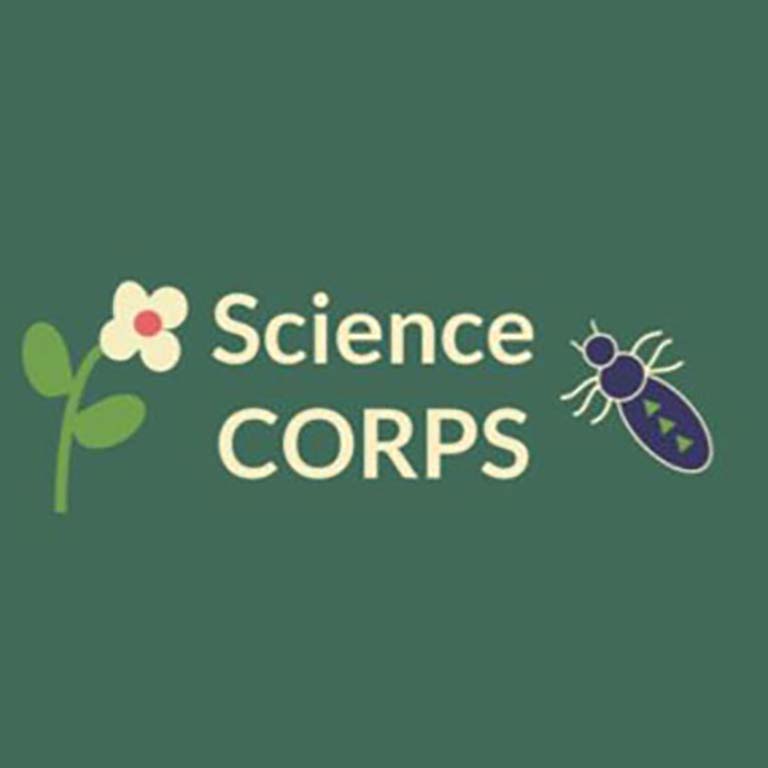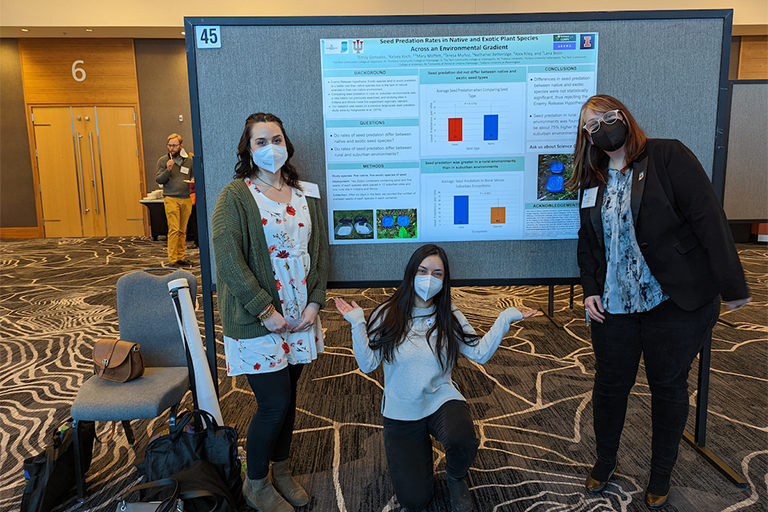Research can provide students with a chance to gain professional experience and learn about careers in science. Unfortunately, these opportunities are rare for community college students seeking new educational experiences.
Lana Bolin, a research associate with the Environmental Resilience Institute, was one such student. She started her academic journey at Minneapolis Community and Technical College in downtown Minneapolis. Today, she is pursuing a Ph.D. in biology at Indiana University.
To help address the need for more equitable research opportunities for students like her, Bolin started Science CORPS in 2021, along with Indiana University Professor and ERI affiliate Jen Lau. The program, supported by ERI and the GEMS Institute at the University of Illinois Urbana-Champaign, engages community college students in Indiana and Illinois in paid research experiences that can be conducted from students’ homes.
“Academia is a weird system to navigate,” Bolin said. “It’s something I didn’t know how to get involved in as a community college student because there’s usually not a program you sign up for—you have to have connections that these students often don’t have.”
Fourteen community college students from Parkland College in Illinois and Ivy Tech campuses from across Indiana participated in 2021. The students were mailed experiment kits containing everything they needed to participate in a distributed ecological study on seed predation. Participants left out containers of heat-killed exotic and native plant seeds in their respective home environments and monitored how many seeds and of which variety were eaten by wild animals.
Additionally, participants met weekly on Zoom to discuss their findings and learn about STEM careers, research opportunities, and more. Bolin co-led these meetings alongside University of Illinois masters student Alex Riley.
Last year’s cohort found that seed predation was more common in rural environments than urban ones and found no significant difference between the predation of exotic versus native species—shedding further light on the complex relationships between exotic plant species and Midwest environments. Participants presented their findings at the Indiana Academy of Sciences conference in March 2022.
“To go a step beyond the project and work toward this presentation at a statewide conference, that was the coolest and most rewarding thing,” said Mary Moffett, one of the students who presented at the conference.
A lifelong lover of science, Moffett’s career has taken her through jobs in technical writing, cake decorating, running her own T-shirt shop, and managing a restaurant before she decided to pursue her interest in environmental science at IUPUI and Ivy Tech. She heard about Science CORPS through an email from Ivy Tech and was motivated by the chance to try her hand at research. However, she said she got a lot more than she expected out of the experience.
“At the time I didn’t realize how [far] beyond just distance research it would go,” she said. “Alex and Lana both were really valuable mentors. I was able to talk to them on Zoom one-on-one about their experiences applying for grad school, deciding between a Ph.D. and a masters, and trying to laser-focus my experience.”
Now graduated and living in Indianapolis, Moffett is interviewing for her “dream jobs” in botany and field ecology. She said her experience with Science CORPS helped her application stand out and that she plans on pursuing graduate school thanks to the insight she gained from the program.
Bolin said that mentoring students like Moffett is a key goal of the program and one of her favorite parts of co-teaching Science CORPS. The program has accepted 20 new students for its 2022 cohort, who will draft their own research questions based on the last cohort’s work this summer.
“Community college students are in general very intentional with their path,” she said. “It’s not the path of least resistance to go to community college and then transfer; you’re really pushed to go straight to a four-year college. A lot of these students are invested in research but just need help getting there.”


 The College of Arts
The College of Arts